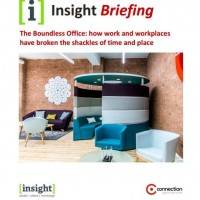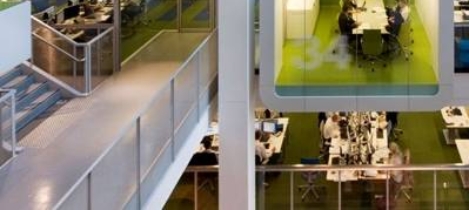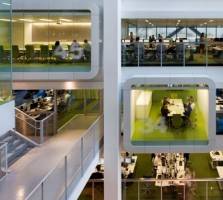March 15, 2016
Décor matters but location most important factor for the ideal office 0
 Recent data has shown that increasingly, it’s people, not cost, which is the primary driver behind real estate decisions. British Land has carried out research into what features would make up the UK workers’ ideal office and the results point to a clear link between delivering these ideal features and talent recruitment and retention. The good news is that the workers surveyed believe they would be 36 percent more productive at work if they were working in the ideal office, and, 86 percent say they’d stay longer with an employer that had the ideal office location and features. The other side of the coin is that 80 percent believe that companies that don’t offer their employees a convenient location and attractive features are more likely to lose them. Younger workers in particular are markedly more likely to move jobs to find a working environment that suits them, and this includes offering a workplace with a ‘buzz’.
Recent data has shown that increasingly, it’s people, not cost, which is the primary driver behind real estate decisions. British Land has carried out research into what features would make up the UK workers’ ideal office and the results point to a clear link between delivering these ideal features and talent recruitment and retention. The good news is that the workers surveyed believe they would be 36 percent more productive at work if they were working in the ideal office, and, 86 percent say they’d stay longer with an employer that had the ideal office location and features. The other side of the coin is that 80 percent believe that companies that don’t offer their employees a convenient location and attractive features are more likely to lose them. Younger workers in particular are markedly more likely to move jobs to find a working environment that suits them, and this includes offering a workplace with a ‘buzz’.




































March 8, 2016
Classrooms are starting to mimic the form and function of the office 0
by Tricia McCall • Comment, Technology, Workplace design
Technology is not the only factor impacting the way education is being approached in the classrooms of today. While it’s true that many classrooms have begun to adapt to the inclusion of technology in the curriculum, there are also several “offline” options which have clearly trickled down from business design. Globally known companies such as Google and Apple have long been getting attention for the offbeat office culture they are cultivating. This trend has been fanning out into the other companies and industries as well. In-house chefs, rock climbing walls, and unconventional meeting spaces are a few of the unusual features popping up in offices all over the globe. Employers are striving to entice potential job candidates and retain their existing employees through unique and engaging environments. It may well be that the bells have already tolled for the conventional cubicle culture of the past.
(more…)